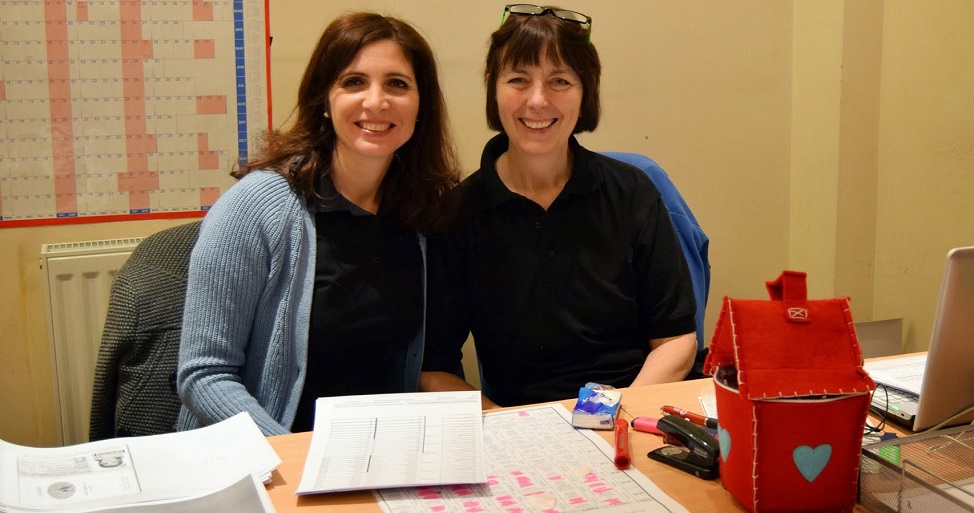
Tips on recruiting volunteers
Whether a parent gives up a few hours a month to lend a hand, or a volunteer coach travels up and down the country every weekend to tournaments, volunteers are the life and soul of squash clubs.
It can sometimes be difficult to find new volunteers to support your club or county squash programme. Here are some top tips when considering how to find more people to help out at your club.
Make it flexible
According to the Time Well Spent survey
Flexibility with time is the factor most likely to encourage people to get involved with volunteering.
Consider how flexible your opportunities are. Can you make use of technology to make it more flexible, virtual meetings, working on shared documents, WhatsApp groups for regular communication. Make sure people know the opportunities are flexible
Break it down
Often volunteer roles can seem quite daunting and big commitments. 53% of people who are thinking about volunteering would be interested in opportunities to dip in and out rather than giving time on a regular basis. (Time Well Spent survey).
Can you break bigger roles down into smaller, bite sized roles? Perhaps a role can be shared between a group of people. Consider shorter, project based roles.
Get your members involved
Your membership base comes with a whole host of different skills and experiences, and a passion for the sport and the club. 42% of people started volunteering because they wanted to improve things and / or help people, and a third of volunteers started because they wanted to support a cause / club that's important to them (Time Well Spent survey)
How can you find out what skills your members have? Ask members to help out, either personally, or through newsletters, emails and notice boards.
Make it social
1 in 5 people wanted to meet people/make new friends through volunteering. Make your opportunities social, set up volunteers' WhatsApp groups to connect people, perhaps organise meals, get-togethers, coffee mornings for volunteers, or buddy-up systems for new volunteers.
Get organised
Having a process for volunteers is important, and helps them to feel valued and welcome. Consider your volunteer induction process - do they know what their role is, have they been introduced to other volunteers or key contacts, do they know how to speak with if they have an issue, do you know what they'd like to get out of the experience?
Gain different perspectives
Are your volunteers, staff, and coaches from a range of different backgrounds with different experiences? If your committees, volunteers and coaches consist of people from the same demographic profile, such as similar ages, gender or ethnicity, it is more likely that they will have similar viewpoints. Consider whether your volunteers, staff and coaches is reflective of you club or the local community? If it isn't, how will you attract more diversity, or include different perspectives in decision making?
Understand your needs
Clubs or counties looking for volunteers need to consider what roles they need and what types of skills they are looking for in new volunteers. By sharing and delegating tasks, you can ensure current volunteers do not have too much of a burden and that available roles are more attractive to those who have little time to provide. Use the workforce checklist to help identify some of the roles which might be required at your club.
Finding volunteers
Advertising roles through posters at your venue, via email or at your Annual General Meetings will help to find new support. Equally, identifying potential helpers and making a face-to-face approach often works well. Try advertising in the local area on community noticeboards, articles in the local press or for free online at the Do-It Trust.
The Sport and Recreation Alliance have a volunteer finder where you can post volunteering opportunities available at your club to advertise to people in your local area who are looking to volunteer.
You can also make contact with your local County Sports Partnership, who will have a local volunteer database from their events. We can also advertise any volunteer roles for you on our social media pages. Get in touch: marketing@englandsquash.com.
Induction processes
Does your club have someone who takes the lead on welcoming new volunteers? This doesn't necessarily need to be a detailed role, but someone who can provide a prompt response to any enquiries and a friendly, face-to-face welcome for new volunteers will make a great first impression. It also gives you an opportunity to find out why they want to volunteer at the club so you can ensure the role will be right for them.
It’s important to support new volunteers by having a handover with previous role holders if possible, and providing them with a role description or list of tasks.
Take a look at the volunteer induction checklist.
Retaining volunteers
Speak to your volunteers regularly to check if they need any support, and remember, saying thank you is an absolute must! You may wish to organise an annual social event for your volunteer team too. Remember, volunteers don't work for us, we work for volunteers!
Find out more about supporting and recognising your volunteers here.
Improving gender diversity in volunteering
More men than women volunteer in sport, consider the following points to make your volunteering opportunities more attractive to women to create an inclusive workforce.
- Motivations - Find out the motivations and needs of the female volunteers and how these differ from men; then provide training for staff and volunteers to meet these needs.
- Procedures - Ensure procedures for challenging gender discrimination and stereotyping are clear within your organisation and that volunteers have access to these procedures.
- A social experience - Make volunteering a social experience - this matters the most to women.
- New ways of working - Look at new ways of working, including; changing meeting times to suit people with families, sharing roles, and consider shorter-term volunteer roles to support parents.
- Family friendly - Introduce changes to make volunteering roles 'family friendly' such as opportunities for parents to volunteer and spend time with their children simultaneously.
- Avoid - Avoid gender stereotypes in your communications - showcase both men and women across all volunteer roles.











 Back
Back


-3.png)

 (2).png)
.png)
-1.png)
.png)
.png)
-1.png)


 (1).png)
.png)

